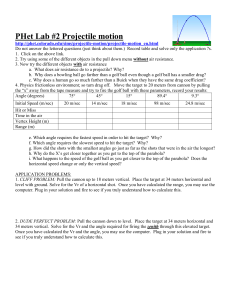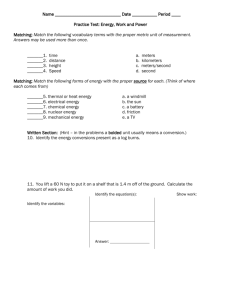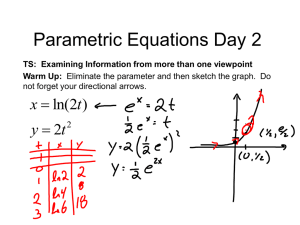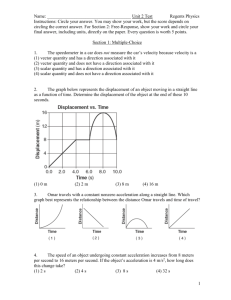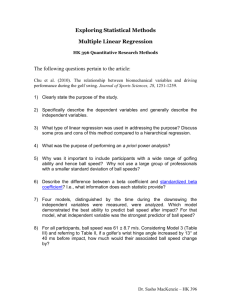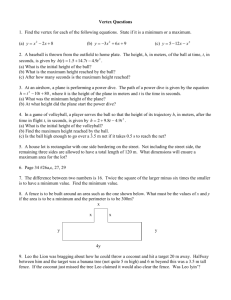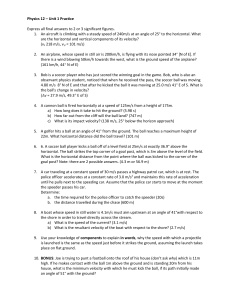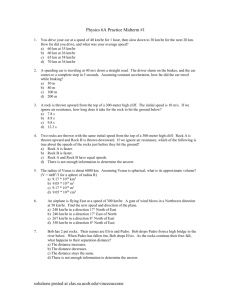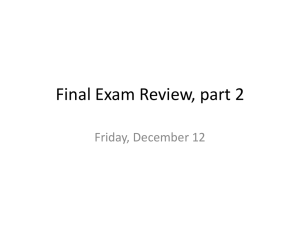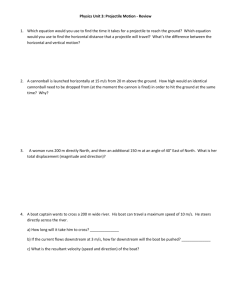Physics 40 Test #1 - Westgate Mennonite Collegiate
advertisement
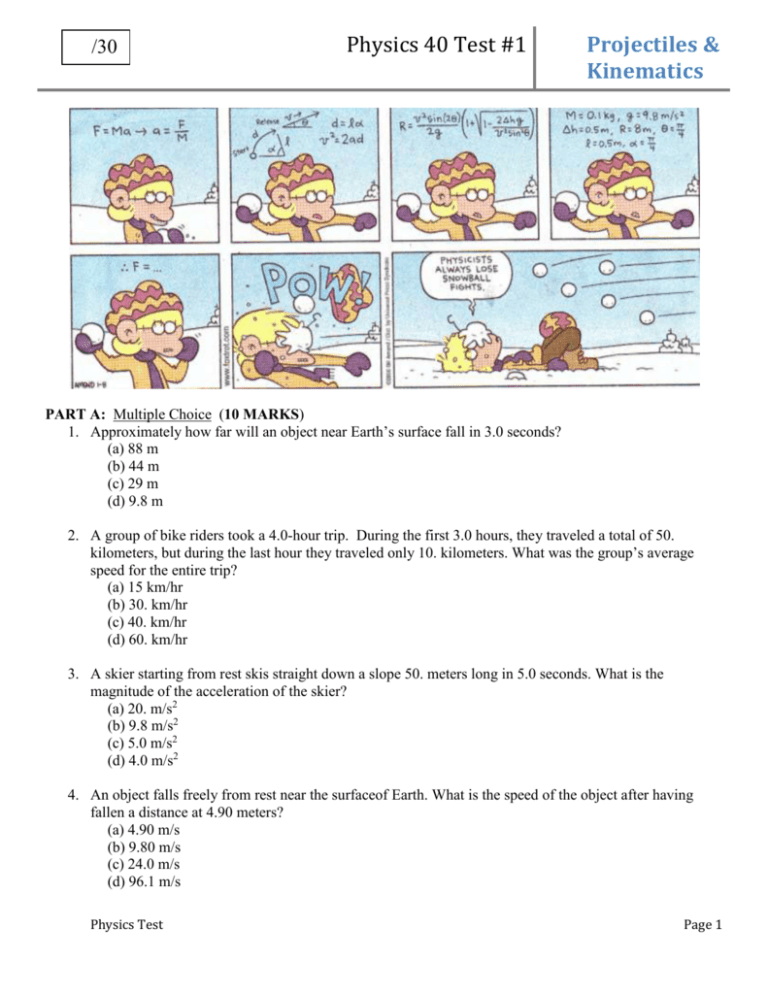
/30 Physics 40 Test #1 Projectiles & Kinematics PART A: Multiple Choice (10 MARKS) 1. Approximately how far will an object near Earth’s surface fall in 3.0 seconds? (a) 88 m (b) 44 m (c) 29 m (d) 9.8 m 2. A group of bike riders took a 4.0-hour trip. During the first 3.0 hours, they traveled a total of 50. kilometers, but during the last hour they traveled only 10. kilometers. What was the group’s average speed for the entire trip? (a) 15 km/hr (b) 30. km/hr (c) 40. km/hr (d) 60. km/hr 3. A skier starting from rest skis straight down a slope 50. meters long in 5.0 seconds. What is the magnitude of the acceleration of the skier? (a) 20. m/s2 (b) 9.8 m/s2 (c) 5.0 m/s2 (d) 4.0 m/s2 4. An object falls freely from rest near the surfaceof Earth. What is the speed of the object after having fallen a distance at 4.90 meters? (a) 4.90 m/s (b) 9.80 m/s (c) 24.0 m/s (d) 96.1 m/s Physics Test Page 1 Physics 40 Test #1 Projectiles & Kinematics 5. A ball is thrown at an angle of 38° to the horizontal. What happens to the magnitude of the ball’s vertical acceleration during the total time interval that the ball is in the air? a) It decreases, then increases. b) It decreases, then remains the same. c) It increases, then decreases. d) It remains the same. 6. Projectile A is launched horizontally at a speed of 20. meters per second from the top of a cliff and strikes a level surface below, 3.0 seconds later. Projectile B is launched horizontally from the same location at a speed of 30. meters per second. (i) The time it takes projectile B to reach the level surface is a) 4.5 s b) 2.0 s c) 3.0 s d) 10. s (ii) Approximately how high is the cliff? a) 29 m b) 44 m c) 60. m d) 104 m 7. A child kicks a ball with an initial velocity of 8.5 meters per second at an angle of 35º with the horizontal, as shown. The ball has an initial vertical velocity of 4.9 meters per second and a total time of flight of 1.0 second. [Neglect air resistance.] (i) The horizontal component of the ball’s initial velocity is approximately a) 3.6 m/s b) 4.9 m/s c) 7.0 m/s d) 13 m/s (ii)The maximum height reached by the ball is approximately a) 1.2 m b) 2.5 m c) 4.9 m d) 8.5 m 8. A rock of mass m is thrown horizontally off a building from a height h, as shown. The speed of the rock as it leaves the thrower’s hand at the edge of the building is v0.How much time does it take the rock to travel from the edge of the building to the ground? hv 0 2h h (a) (b) (c) (d) (e) 2h g hv o g v0 g Physics Test Page 2 Physics 40 Test #1 Projectiles & Kinematics PART B: Long Answer 1. Two rugby players are running towards each other. They are 37.0 m apart. If one is accelerating from rest at 0.500 m/s2 and the other was already moving at 3.10 m/s and maintains her speed (a) how long before they crunch together (b) how fast was the accelerating player going? (5 MARKS) 2. The lob in tennis is an effective tactic when your opponent is near the net. It consists of lofting the ball over his head, forcing him to move quickly away from the net. Suppose that you loft the ball with an initial speed of 14.0 m/s, at an angle of 52.0° above the horizontal. At this instant your opponent is 8.00 m away from the ball. He begins moving away from you 0.250 s later, hoping to reach the ball and hit it back at the moment that it is 1.70 m above its launch point. With what minimum average speed must he move? (5 MARKS) 3. A baseball is hit into the air at an initial speed of 41.2 m/s and an angle of 36.0° above the horizontal. At the same time, the center fielder starts running away from the batter, and he catches the ball 0.991 m above the level at which it was hit. If the center fielder is initially 1.00 x 102 m from home plate, what must be his average speed? (5 MARKS) 4. In the javelin throw at a track-and-field even, the javelin is launched at a speed of 29.0 m/s at an angle of 36.0° above the horizontal. As the javelin travels upward, its velocity points above the horizontal at an angle that decreases as time passes. (a) How much time is required for the angle to be reduced from 36.0° at launch to 18.0°? (b) What is the speed (scalar) of the javelin at this instant? (5 MARKS) END OF TEST Physics Test Page 3
